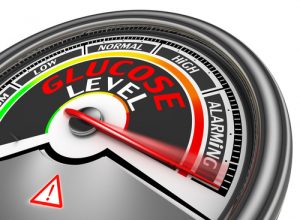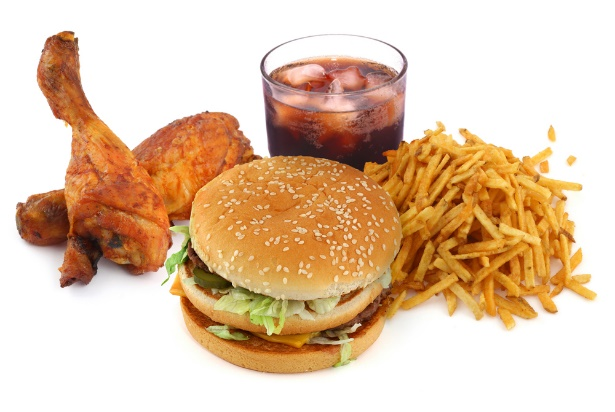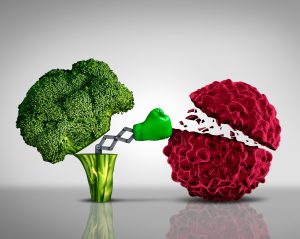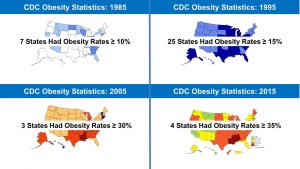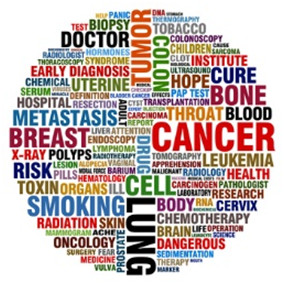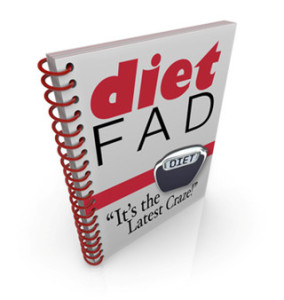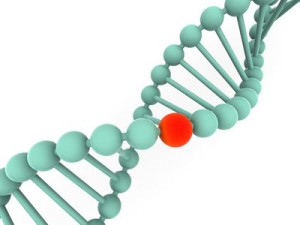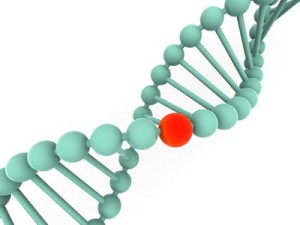The Danger Of Ultraprocessed Foods
Author: Dr. Stephen Chaney
 It breaks my heart when I see a mom and her children in the checkout line of a supermarket with a cart filled with sodas, sweets, and convenience foods and devoid of fresh fruits and vegetables – or when I see fast food restaurants packed with parents and their children.
It breaks my heart when I see a mom and her children in the checkout line of a supermarket with a cart filled with sodas, sweets, and convenience foods and devoid of fresh fruits and vegetables – or when I see fast food restaurants packed with parents and their children.
I get it. Our kids love these foods. It seems like an act of kindness to give them the foods they crave. But are we killing our children with kindness?
Let me explain. The human brain is hardwired to crave sweets, salt, and fat. In prehistoric times each of these cravings had a survival benefit. For example:
- Mother’s milk is naturally sweet. It only makes sense that babies should crave the nutrition source that is essential for their early growth and development.
- Fruits provide a cornucopia of vitamins, minerals, and phytonutrients. But fruits were scarce and seasonal in prehistoric times. Their sweetness provided an incentive for early man to seek them out.
- Some salt is essential for life. Yet in early history it was scare. It was worth its weight in gold.
- In prehistoric times it was feast or famine. The human body has an unlimited capacity to store fat in times of plenty, and those fat stores carried early man through times of famine.
Today most Americans live in a time of food abundance. There are fast food restaurants on almost every street corner and in every shopping mall. We think of famine as the days we skipped lunch because we were busy.
Yet these cravings remain, and the food industry has weaponized them. They are churning out an endless supply highly processed foods and beverages. These foods are not being designed to improve their nutritional value. They are designed to satisfy our cravings and lure us and our children into consuming more of them every year.
Scientists have developed a classification system that assigns foods in the American diet to different groups based on the degree of processing of that food. As you might expect, the best classification is unprocessed foods. The worst classification is called “ultraprocessed foods”. [I will describe this classification system in more detail in the next section.]
It is time we asked how much ultraprocessed foods our children are eating and what it is doing to their health. That is the topic of the study (L Wang et al, JAMA, 326: 519-530, 2021) I will discuss today.
How Was This Study Done?
 The data for this study were obtained from NHANES (National Health and Nutrition Examination Survey) dietary data collected from 33,795 American children (ages 2-19, average age = 10) between 1999 and 2018.
The data for this study were obtained from NHANES (National Health and Nutrition Examination Survey) dietary data collected from 33,795 American children (ages 2-19, average age = 10) between 1999 and 2018.
NHANES is a program conducted by the CDC to survey the health and nutritional status of adults and children in the United States. The survey has been conducted on a continuous, yearly basis since 1999.
The dietary data are collected via 24-hour dietary recalls conducted by trained interviewers, with a second recall administered over the phone 3-10 days later to improve the accuracy of the data.
- Children aged 12-19 completed the dietary survey on their own.
- For children aged 6-11, a parent or guardian assisted them in filling out the survey.
- For children aged 2-5, a parent or guardian filled out the survey for them.
The foods and beverages consumed by the children were divided into 4 major groups based on the extent of processing using a well-established classification system called NOVA. The 4 groups are:
1) Unprocessed Or Minimally Processed Foods.
- This includes whole foods and foods that are minimally processed without the addition of oils, fats, sugar, salt, or other ingredients to the food.
- Examples of minimally processed foods include things like oatmeal, nut butters, dried fruit, frozen fruits or vegetables, and dried beans.
2) Processed Culinary Ingredients.
- This includes recipes from restaurants or in-home cooking that add small amounts of oils, fats, sugar, salt, and seasonings to whole foods.
3) Processed Foods
- This includes foods made in factories by the addition of salt, sugar, oil, or other substances added to whole or minimally processed foods.
- Examples include tomato paste, canned fruits packed in sugar syrup, cheese, smoked or cured meat.
4) Ultraprocessed Foods
- These are industrial formulations created in factories mostly or entirely from substances extracted from foods (oils, fats, sugar, starch, and proteins), derived from food constituents (hydrogenated fats and modified starch), or synthesized in laboratories (flavor enhancers, colors, and food additives).
- Examples include sugar sweetened beverages; sweet or savory packaged snacks; chocolates and candies; burgers, hot dogs, and sausages; poultry and fish nuggets, pastries, cakes, and cake mixes.
Are We Killing Our Children With Kindness?
 As I said above, the important question is, “Are we killing our children with kindness when we give them the sugary drinks, sweets, convenience foods, and fast foods they crave?” After all, the foods we give them when they are young are the ones they are most likely to select when they get older.
As I said above, the important question is, “Are we killing our children with kindness when we give them the sugary drinks, sweets, convenience foods, and fast foods they crave?” After all, the foods we give them when they are young are the ones they are most likely to select when they get older.
Let’s start by looking at how pervasive these foods have become. That was the purpose of the study I am discussing today, and the results of this study are alarming. When they looked at the changes in food consumption by our children between 1999 and 2018:
- The percentage of calories from ultraprocessed foods increased from 61.4% to 67%. That means:
-
- Today, more than 2/3 of the calories our children consume daily come from ultraprocessed foods!
- The percentage of calories from unprocessed and minimally processed foods decreased from 28.8% to 23.5%. That means:
-
- In the span of just 19 years the diets of our children have gone from bad to worse!
- Ultraprocessed foods were more likely to be consumed away from home and at fast food restaurants.
When the investigators looked at individual categories of ultraprocessed foods:
- The percentage of calories coming from ready to heat and eat dishes like frozen pizzas and other frozen meals or snacks increased from 2.2% to 11.2%.
- The percentage of calories coming from sweet snacks and desserts increased from 10.7% to 12.9%.
- The percentage of calories coming from sugar sweetened beverages decreased from 10.8% to 5.3%.
-
- This is potentially the only good news from this study.
The authors concluded. “Based on NHANES data from 1999 to 2018, the estimated energy intake from consumption of ultraprocessed foods has increased among youths in the US and has consistently comprised the majority of their total energy intake.”
“These results suggest that food processing may need to be considered as a food dimension in addition to nutrients and food groups in future dietary recommendations and food policies.”
The Danger Of Ultraprocessed Foods
 This study clearly shows that ultraprocessed foods have become the mainstay of our children’s diets. Forget a balanced diet! Forget “Eat your fruits and vegetables”! Our children’s diets have been fundamentally transformed by “Big Food, Inc”.
This study clearly shows that ultraprocessed foods have become the mainstay of our children’s diets. Forget a balanced diet! Forget “Eat your fruits and vegetables”! Our children’s diets have been fundamentally transformed by “Big Food, Inc”.
You might be saying to yourself, “So, they are eating their favorite processed foods. What’s the big deal? How bad can it be?” My answer is, “Pretty Bad”. I chose the title, “Are we killing our children with kindness”, for a reason.
When you look at what happens to children who eat a diet that is mostly ultraprocessed foods:
#1: Their nutrition suffers. When the investigators divided the children into 5 groups based on the percentage of calories coming from ultraprocessed foods, the children consuming the most ultraprocessed food had:
- Significantly higher intakes of carbohydrates (mostly refined carbohydrates); total fats; polyunsaturated fats (mostly highly processed omega-6-rich vegetable oils); and added sugars.
- Significantly lower intakes of fiber; protein; omega-3 polyunsaturated fatty acids; calcium; magnesium; potassium; zinc; vitamins A, C, D, and folate.
-
- The low intake of fiber means our children will be less likely to have health-promoting friendly bacteria and more likely to have disease-promoting bad bacteria in their guts.
-
- The low intake of calcium, magnesium, and vitamin D means they will be less likely to achieve maximum bone density as young adults and will be more likely to suffer from osteoporosis as they age.
#2: They are more likely to become obese. Remember, these are foods that are made in a factory, not grown on a farm.
- They are high in fat, sugar, and refined carbohydrates. That means they have a high caloric density. Each bite has 2-3 times the calories found in a bite of fresh fruits and vegetables.
- As I said earlier, the food industry has weaponized our natural cravings for sweet, salty, and fatty foods. They feed their prototypes to a series of consumer tasting panels until they find the perfect blend of sugar, salt, and fat to create maximum craving.
- And if that weren’t enough, they add additives to create the perfect flavor and “mouth appeal”.
-
- It is no wonder that clinical studies have found a strong correlation between high intake of ultraprocessed food and obesity in both children and adults.
-
- It is also no wonder that the rate of childhood obesity has almost quadrupled (5% to 18.5%) in the last 40 years.
#3: They are more likely to become sick as adults and die prematurely.
- Obesity; high intake of fat, sugar, and refined carbohydrates; and low intake of fiber, omega-3s, and essential nutrients all contribute to an increased risk of diabetes, heart disease, and some cancers.
-
- It is no wonder that clinical studies have found a strong correlation between high intake of ultraprocessed food and increased risk of diabetes, heart disease, some cancers, and premature death in adults.
-
- It is also no wonder a recent study found that type 2 diabetes in children has almost doubled between 2001 and 2017.
The data are clear. When we allow our children to subsist on a diet mostly made up of the ultraprocessed foods they crave, we may be giving them, not love, but a lifetime of obesity and declining health instead. And yes, we may be killing them with kindness.
Instead, my recommendations are:
- expose your children to a variety of fresh fruits, vegetables, and minimally processed foods at an early age.
- They will reject some of them, and that’s OK. Introduce others until you find whole, minimally processed foods they like. Reintroduce them to some of the foods they initially rejected as they get older.
- Don’t keep tempting ultraprocessed foods in your house.
- You may just succeed in putting your children on the path to a healthier diet and a healthier, longer life.
The Bottom Line
It breaks my heart when I see a mom and her children in the checkout line of a supermarket with a cart filled with sodas, sweets, and convenience foods and devoid of fresh fruits and vegetables – or when I see fast food restaurants packed with parents and their children.
I get it. Our kids love these foods. It seems like an act of kindness to give them the foods they crave. But are we killing our children with kindness?
It is time we asked how much ultraprocessed foods our children are eating and what it is doing to their health. A recent study did just that. When they looked at the changes in food consumption by our children between 1999 and 2018:
- The percentage of calories from ultraprocessed foods increased from 61.4% to 67%. That means:
-
- Today, more than 2/3 of the calories our children consume daily come from ultraprocessed foods!
- The percentage of calories from unprocessed and minimally processed foods decreased from 28.8% to 23.5%. That means:
-
- In the span of just 19 years the diets of our children have gone from bad to worse!
This study clearly shows that ultraprocessed foods have become the mainstay of our children’s diets. Forget a balanced diet! Forget “Eat your fruits and vegetables”! Our children’s diets have been fundamentally transformed by “Big Food, Inc”.
You might be saying to yourself, “So, they are eating their favorite processed foods. What’s the big deal? How bad can it be?” My answer is, “Pretty Bad”. I chose the title, “Are we killing our children with kindness”, for a reason.
When you look at what happens to children who eat a diet that is mostly ultraprocessed foods:
- Their nutrition suffers.
- They are more likely to become obese.
- They are more likely to become sick as adults and die prematurely.
For more details about this study, read the article above.
These statements have not been evaluated by the Food and Drug Administration. This information is not intended to diagnose, treat, cure, or prevent any disease.





